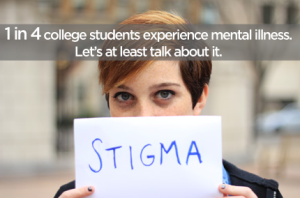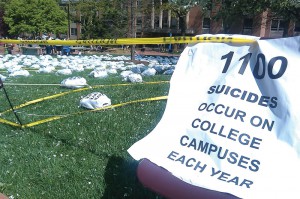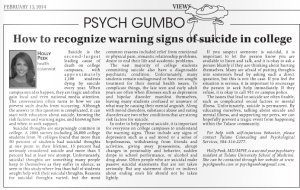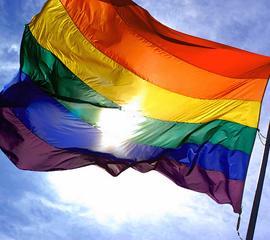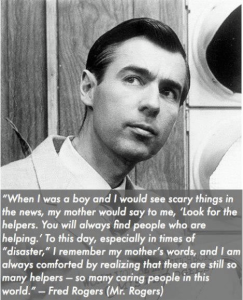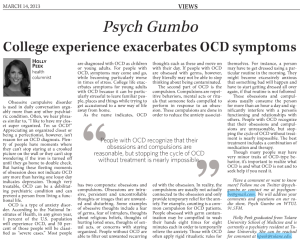Posts tagged ‘anxiety’
Colleges in Crisis: let’s talk about young adult mental health
The Tulane community has suffered several tragedies during the Fall 2014 semester, highlighting the need for awareness and advocacy for mental health issues on campus. Tulane isn’t alone in this mental health crisis. Colleges across the country struggle to meet the needs of their students and reduce the stigma surrounding mental illness. In order for us to come together as a community, we must talk about the unique mental health challenges college students face. Students must feel empowered to discuss mental health issues, while supporting and encouraging their peers to seek help when they need it.
See my article in The Hullabaloo to learn more about college mental health.
More Resources for College Mental Health:
The Hookup Culture: does casual sex lead to depression, anxiety and low self-esteem?
It is no secret that casual sex is common on college campuses. In fact, studies have shown that 60 to 80 percent of college students have had some type of casual sex experience. Much research has focused on the link between casual sex and the negative effects it may have on a person’s mental health, such as contributing to depression, anxiety or low self-esteem. Much of this research is inconclusive or with mixed results. However, new research has indicated that it is not if a person participates in casual sex but the reasons behind their actions that contribute to negative emotional effects. To learn more, check out my latest article in The Tulane Hullabaloo.
How to recognize warning signs of suicide in college
Suicide is the second-largest leading cause of death on college campuses, with approximately 1,100 students dying by suicide every year. Click my latest column below to learn more about suicide in college students, the risk factors and warning signs, and knowing how and when to seek support. Although the answer to preventing these tragedies is complicated, it can certainly start with educating ourselves about this tragic mental health issue.
LGBTQ Mental Health: Facing the Double Stigma
The LGBTQ community is a population that is faced with stigma and stereotypes. Because of this, those in this minority population are often more susceptible to mental health issues and are at higher risk for suicide. In fact, LGBTQ adults are 2.5x more likely than heterosexuals to have had a mental health disorder related to mood, anxiety or substance abuse, in their lifetime. Furthermore, the rates of suicide attempt among LGBTQ youth are 20-40% higher than among non-LGBTQ youth.
In this week’s Psych Gumbo, Dr. Holly Peek discusses mental health issues of the LGBTQ community with special guest, Dr. Myo Thwin Myint. Dr. Myint is a physician with training in pediatrics, general psychiatry and child & adolescent psychiatry. Among others, his interests includes LGBTQ mental health.
Here are some recommended resources for more information on LGBTQ mental health:
Story of a Boston Marathon Survivor
There has been a lot of media coverage about the Boston Marathon bombings and the violent events that occurred during that week. Now that we are a few weeks away from the terrorist event, it’s important to realize what many victims of the attack may be experiencing emotionally. Dr. Holly Peek and Dr. Mordi Potash interview New Orleanian and Boston Marathon runner, Tim Phillips. Tim was at the second bomb site during the explosion and spent 40 agonizing minutes searching for loved ones after the attack. Hear his story and learn more about the emotional side of the Boston Marathon terrorist attack.
Emotional Recovery after the Boston Bombing
The five days of terror in Boston began with a horrific bombing and ended with a police shoot out, a capture of a terrorist, and finally celebrations in the street. For the victims, their families, and the people living in Boston, the fear, uncertainty and anger that lasted for those five days undoubtedly caused a great deal of mental distress. For the rest of us glued to our televisions watching non-stop coverage of the terrorist attack, the feelings we experienced were equally unsettling.
Victims and witnesses to the violent events of last week may be faced with a range of negative emotions. Not all negative feelings are pathological. It’s natural to feel anger, frustration, helplessness, grief, sadness or fear after a terrorist event. Acute stress disorder and post traumatic stress disorder (PTSD) occur when a person has experienced or witnessed a traumatic event and felt an intense fear or helplessness. They may feel detached or be described as “being in a daze” either while the event is happening or afterwards. They will frequently re-experience the event through recurrent dreams, thoughts, or flashbacks and often avoid recollecting the trauma either by avoiding conversations, people, places, or activities they may associate with the event. They have symptoms of increased arousal, including difficulty sleeping, irritability or outbursts of anger, difficulty concentrating or an exaggerated startle response. Symptoms of Acute Stress Disorder begin shortly after the traumatic event and the symptoms last for less than four weeks. Symptoms of PTSD, on the other hand, can present shortly after or months after the event and the symptoms may persist for years.
For the rest of the country, witnessing the events play repeatedly on television may not be enough to induce Acute Stress Disorder or PTSD, but it can certainly cause a sense of uneasiness and a reminder that there are people out there who commit evil acts when they are least expected. Some psychologists have described disasters caused by terrorism such as 9/11 and now the Boston bombings as “collective traumas.” Because of the large scale and unpredictability, collective traumas serve as a reminder that we are all vulnerable to death and harm and we have limited capabilities to protect those we love, thus threatening our sense of security in everyday life. In order to avoid feelings of uneasiness or paranoia, it’s important to keep the perspective that on any given day, the likelihood another attack will occur and that it will happen to you personally is quite low and it’s important to continue engaging in normal activities.
It’s also important to realize for every evil terrorist, there are millions of good people. The number of heroes that emerged in Boston were exponentially higher than the two hateful young men who inflicted so much pain. On the news, we heard stories of all the helpers that emerged during a time when many Bostonians needed help the most, both physically and emotionally. That in itself is reason enough to instill a sense of hope and comfort.
OCD: what it is and what it isn’t
“I’m so OCD!” is a phrase we may use from time to time when describing the fact we must have our closet clean, the crooked picture on the wall bothers us, or when the desk drawer has to be organized in a particular way. However, OCD stands for obsessive compulsive disorder and is often a misused term in daily conversation . OCD can be a very debilitating mental health condition and when left untreated it can be devastating for a patient and their families. OCD symptoms can be made worse in times of stress and is often diagnosed in childhood or early adulthood. Stressful transitions in college can also exacerbated symptoms of college students suffering from OCD. Read my latest article in The Hullabaloo to find out what OCD is, and what it isn’t!
